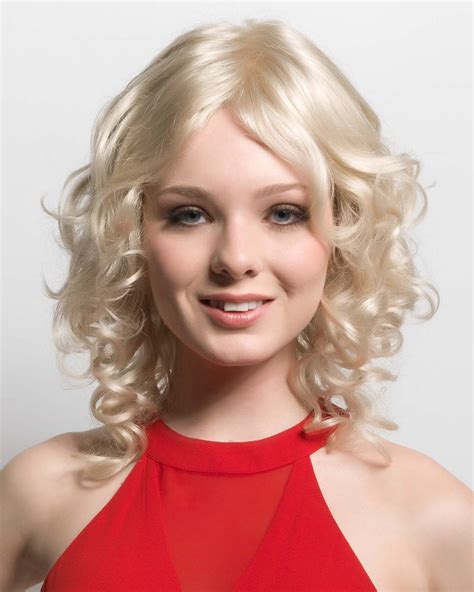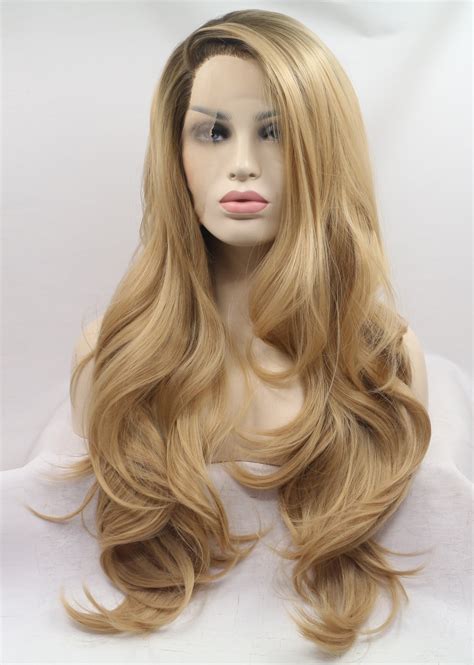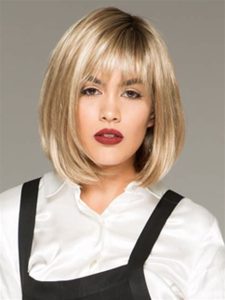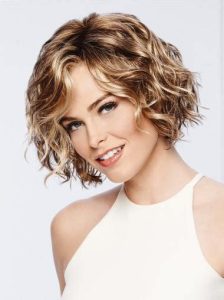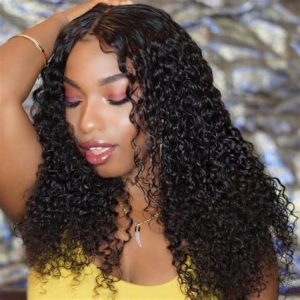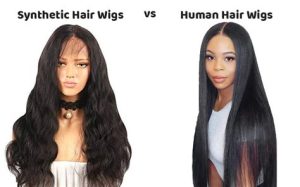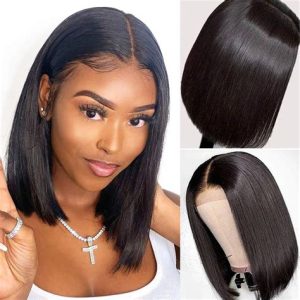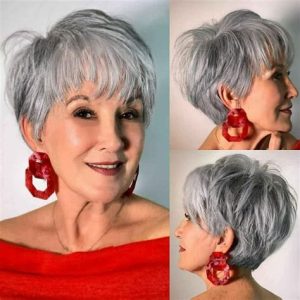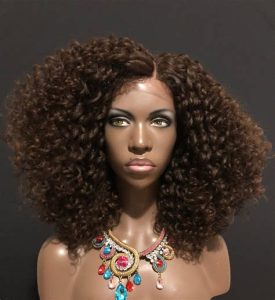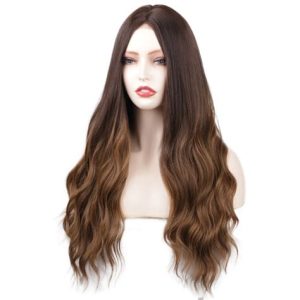Wavy Platinum Blonde Wig: Monofilament VS Lace Front (2025)
Introduction
Wigs are a great way to change up your look without having to commit to a permanent change. They’re also a great option for people who are experiencing hair loss. There are different types of wigs available, but two of the most popular are monofilament wigs and lace front wigs.
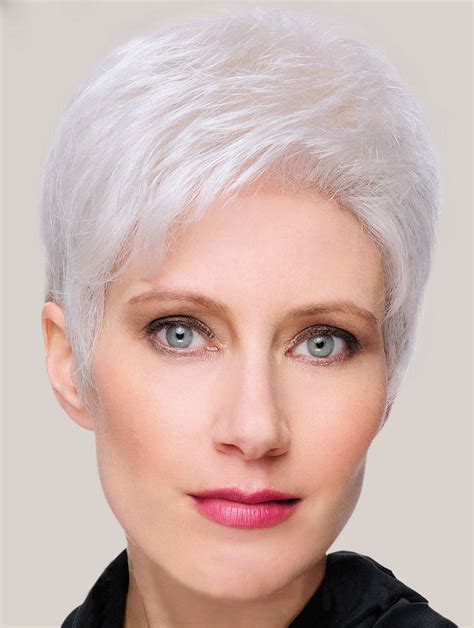
Monofilament Wigs VS Lace Front Wigs
Monofilament wigs are made with a thin, transparent fabric that creates the illusion of a natural scalp. The hair is then hand-tied into the fabric, one strand at a time. This creates a very realistic look, and monofilament wigs are often considered to be the most natural-looking type of wig.
Lace front wigs are made with a lace base that is attached to the forehead. The hair is then hand-tied into the lace, creating a very realistic look. Lace front wigs are often more expensive than monofilament wigs, but they offer a number of advantages.
Pros and Cons of Monofilament Wigs
Monofilament wigs offer several advantages over other types of wigs. However, there are also some disadvantages to consider.
-
Pros:
- Very realistic appearance
- Breathable and comfortable to wear
- Easy to style
-
Cons:
- More expensive than other types of wigs
- Can be difficult to maintain
Pros and Cons of Lace Front Wigs
Lace front wigs also offer several advantages over other types of wigs. However, there are also some disadvantages to consider.
-
Pros:
- Very realistic appearance
- Breathable and comfortable to wear
- Can be styled in a variety of ways
-
Cons:
- More expensive than other types of wigs
- Can be difficult to maintain
Which Type of Wig Is Right for You?
The best type of wig for you will depend on your individual needs and preferences. If you’re looking for a very realistic-looking wig that is comfortable to wear and easy to style, then a monofilament wig or lace front wig may be a good option for you. However, if you’re on a budget or you’re not sure how often you’ll wear a wig, then a less expensive type of wig may be a better choice.
How to Care for Your Wig
Wigs require special care to keep them looking their best. Here are a few tips for caring for your wig:
- Wash your wig regularly. The frequency with which you need to wash your wig will depend on how often you wear it. However, most wigs should be washed at least once a week.
- Use a mild shampoo and conditioner. Avoid using harsh shampoos or conditioners on your wig, as this can damage the hair.
- Air dry your wig. Never put your wig in the dryer, as this can also damage the hair. Instead, air dry your wig on a wig stand.
- Store your wig properly. When you’re not wearing your wig, store it in a cool, dry place. Avoid storing your wig in direct sunlight, as this can fade the hair.
Conclusion
Wigs are a great way to change up your look without having to commit to a permanent change. They’re also a great option for people who are experiencing hair loss. There are different types of wigs available, but two of the most popular are monofilament wigs and lace front wigs. The best type of wig for you will depend on your individual needs and preferences.
FAQs
-
Q: How long do wigs last?
- A: The lifespan of a wig will vary depending on how well it is cared for. However, most wigs can last for several years with proper care.
-
Q: How do I choose the right wig for me?
- A: The best way to choose the right wig for you is to consult with a professional stylist. They can help you determine which type of wig is best for your face shape and hair type.
-
Q: How do I care for my wig?
- A: Wigs require special care to keep them looking their best. Here are a few tips for caring for your wig:
- Wash your wig regularly.
- Use a mild shampoo and conditioner.
- Air dry your wig.
- Store your wig properly.
- A: Wigs require special care to keep them looking their best. Here are a few tips for caring for your wig:
Market Insights
The global wig market is expected to reach $12.5 billion by 2025. This growth is being driven by a number of factors, including:
- The growing popularity of wigs among celebrities and fashion icons.
- The increasing demand for wigs among people who are experiencing hair loss.
- The development of new and innovative wig technologies.
Pain Points
There are a number of pain points associated with wigs. These pain points include:
- Cost: Wigs can be expensive, especially high-quality wigs.
- Maintenance: Wigs require special care to keep them looking their best.
- Comfort: Some wigs can be uncomfortable to wear, especially if they are not properly fitted.
- Durability: Wigs can be damaged easily, especially if they are not properly cared for.
Motivations
There are a number of motivations for using wigs. These motivations include:
- Fashion: Wigs can be used to change up your look without having to commit to a permanent change.
- Hair loss: Wigs can be used to cover up hair loss due to medical conditions or treatments.
- Convenience: Wigs can be easier to manage than natural hair, making them a good option for people with busy lifestyles.
Step-by-Step Approach to Choosing and Wearing a Wig
- Consult with a professional stylist. A professional stylist can help you determine which type of wig is best for your face shape and hair type.
- Choose a wig that is the right size and color. The wig should fit snugly on your head, and the color should match your natural hair color.
- Apply the wig to your head. Make sure the wig is applied evenly and securely.
- Style your wig. You can style your wig in a variety of ways to achieve the desired look.
- Care for your wig. Wigs require special care to keep them looking their best. Follow the care instructions provided by the manufacturer.
Tables
Table 1: Comparison of Monofilament and Lace Front Wigs
| Feature | Monofilament Wig | Lace Front Wig |
|---|---|---|
| Appearance | Very realistic | Very realistic |
| Comfort | Breathable and comfortable to wear | Breathable and comfortable to wear |
| Style | Easy to style | Can be styled in a variety of ways |
| Price | More expensive | More expensive |
| Maintenance | Can be difficult to maintain | Can be difficult to maintain |
Table 2: Pain Points Associated with Wigs
| Pain Point | Description |
|---|---|
| Cost | Wigs can be expensive, especially high-quality wigs. |
| Maintenance | Wigs require special care to keep them looking their best. |
| Comfort | Some wigs can be uncomfortable to wear, especially if they are not properly fitted. |
| Durability | Wigs can be damaged easily, especially if they are not properly cared for. |
Table 3: Motivations for Using Wigs
| Motivation | Description |
|---|---|
| Fashion | Wigs can be used to change up your look without having to commit to a permanent change. |
| Hair loss | Wigs can be used to cover up hair loss due to medical conditions or treatments. |
| Convenience | Wigs can be easier to manage than natural hair, making them a good option for people with busy lifestyles. |
Table 4: Market Insights for the Global Wig Market
| Year | Market Size (USD Billion) |
|---|---|
| 2020 | 8.6 |
| 2021 | 9.3 |
| 2022 | 10.1 |
| 2023 | 11.0 |
| 2024 | 11.9 |
| 2025 | 12.5 |
Conclusion
Wigs are a great way to change up your look without having to commit to a permanent change. They’re also a great option for people who are experiencing hair loss. There are different types of wigs available, but two of the most popular are monofilament wigs and lace front wigs. The best type of wig for you will depend on your individual needs and preferences.
